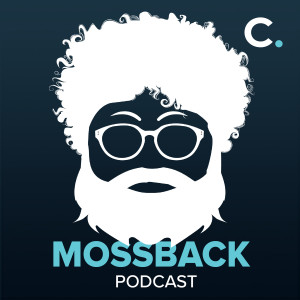Episodes

Thursday May 12, 2022
Power, Politics and Partisanship with Robert Gibbs and Rick Wilson
Thursday May 12, 2022
Thursday May 12, 2022
The former Obama strategist and the Lincoln Project co-founder discuss upcoming midterm elections and the 2024 presidential race.
The revelation that the U.S. Supreme Court may very well overturn Roe v. Wade this summer turned up the heat on what was already a period of intense partisan division in the United States. With continued fallout from the Jan. 6, 2021, insurrection and the upcoming midterm elections, there is little indication that Democrats and Republicans will come together any time soon.
Still, while partisan rancor may pose a threat to American democracy, politicians in both parties are leveraging it in their own attempts to build support, raise money and get things done.
Former Republican strategist Rick Wilson and former presidential adviser Robert Gibbs are both familiar with the calculus involved in turning partisanship into political gain. But they are also aware of the threats that severe partisanship can bring.
For this episode of the Crosscut Talks podcast, the two political strategists discuss the fight for Congress in 2022 and the White House, detail missteps in their own parties that helped create the current landscape and consider why some Americans may prefer authoritarianism to democracy.
---
Credits
Host: Mark Baumgarten
Producer: Sara Bernard
Event producers: Jake Newman, Andrea O'Meara
Engineers: Resti Bagcal, Viktoria Ralph

Tuesday May 10, 2022
Ezra Klein on Roe, Ukraine and Hope
Tuesday May 10, 2022
Tuesday May 10, 2022
The New York Times columnist and popular podcast host discusses what he pays attention to and why.
Ezra Klein makes a living paying attention. As a columnist for the New York Times and the host of the Ezra Klein podcast, he must decide what to focus his attention on, how long to focus it and when to move on. And, given the unforgiving churn of the modern newscycle, that is no small task.
Klein’s journalism is expansive enough to effectively respond to that news cycle. He delves into topics as divergent as white nationalism, science fiction, abortion rights and cryptocurrency. But he is no dilettante. Klein comes to each of these topics deeply researched and with well-developed ideas and questions. And when he really wants to understand something, he goes all in and takes his listeners with him.
That was the case earlier this year when, following Russia’s invasion of Ukraine, Klein decided to go deep into the conflict. Over the course of a few months, he committed 11 episodes of his hourlong interview podcast to the conflict, investigating numerous aspects of the conflict with expert guests.
For this episode of the Crosscut Talks podcast, recorded as part of the 2022 Crosscut Festival, we invited Klein to discuss the thinking that went into his coverage of the war in Ukraine and what understanding he gained from that deep dive. And because we couldn’t focus all our attention on one thing, we asked him about the recent leak of a draft opinion from the U.S. Supreme Court and what hope there is for an end to the partisan rancor that defines our national conversation.
---
Credits
Host: Mark Baumgarten
Producer: Sara Bernard
Event producers: Jake Newman, Andrea O'Meara
Engineers: Resti Bagcal, Viktoria Ralph

Sunday May 08, 2022
The Full Fauci Interview with Judy Woodruff
Sunday May 08, 2022
Sunday May 08, 2022
In a conversation with the PBS NewsHour host, the president's chief medical adviser discusses recent data on the pandemic and the future of variants.
At the beginning of the third year of the COVID-19 pandemic, there are many things that public health officials know about the virus that they didn’t know before: how it spreads, for one, and how effective vaccines are against many of the current variants. But there is still much that is unknown.
After a difficult winter dealing with the highly transmissible omicron variant, Americans are heading into another pandemic summer not knowing what new variants are around the corner and, ultimately, when the pandemic will shift into an endemic phase.
As the chief medical adviser to the president and the face of the federal pandemic response, Dr. Anthony Fauci holds the unenviable role of guiding a politically fractured nation through this uncertainty.
For this episode of the Crosscut Talks podcast, we are featuring the full interview between Fauci and PBS Newshour host Judy Woodruff, which took place on April 26, 2022, as part of the Crosscut Festival. In this conversation, Fauci discusses the possibility of new variants, the emergence of new therapies and the political divide that has been a defining aspect of the fight against the virus.
---
Credits
Host: Mark Baumgarten
Producer: Sara Bernard
Event producers: Jake Newman, Andrea O'Meara
Engineers: Resti Bagcal, Viktoria Ralph

Wednesday May 04, 2022
The End of Roe and the Future of Abortion with Dahlia Lithwick
Wednesday May 04, 2022
Wednesday May 04, 2022
The Amicus host and an expert panel discuss the “shocking, but not surprising” draft opinion leaked from the Supreme Court this week suggesting an end to Roe v. Wade.
Since a conservative majority of justices assumed their seats on the U.S. Supreme Court, many have wondered about the future of Roe v. Wade, the controversial ruling that has protected the right to abortion in America for the past half-century.
On Monday, May 2, those questions were (nearly) answered. A draft of the court’s majority opinion on Dobbs v. Jackson Women’s Health Organization was leaked to Politico, suggesting that a 5-4 decision officially overturning Roe is indeed likely to be released in June.
As part of the Crosscut Festival, Crosscut invited journalist Dahlia Lithwick, host of Slate’s Amicus podcast, to lead a panel of experts in a discussion about what officially overturning the 1973 ruling could lead to — and what it portends about a court willing to take on the most divisive issue in generations.
In this week’s episode of Crosscut Talks, Lithwick and her guests discuss the potential legal ramifications of Justice Samuel Alito’s draft opinion as written and the ways in which we are already living in a post-Roe America.
---
Credits
Host: Mark Baumgarten
Producer: Sara Bernard
Event producers: Jake Newman, Andrea O'Meara
Engineers: Resti Bagcal, Viktoria Ralph

Tuesday Apr 12, 2022
Looking Back to Look Forward: Reflecting on Seattle’s Evolution
Tuesday Apr 12, 2022
Tuesday Apr 12, 2022
This edition of Crosscut Talks features the season debut of Civic Cocktail, featuring a discussion with local historians and a futurist on what was and what will be in the Emerald City.
There is a lot to talk about in this present moment. The pandemic continues to disrupt everyday life, while news of clashes on battlefields virtual and actual meet us every morning. Here in Seattle, meanwhile, we continue to struggle with homelessness, growth, inequality and public safety.
As we try to better understand this moment, the inclination is to zoom in. But we’re doing something different for this new season of Civic Cocktail, and the inaugural episode of the Civic Cocktail podcast. We will be taking a step back. First, by taking stock of where we’ve been. And then, where we might be going — after some of the most tumultuous years we’ve ever known.
How do we do that in just 60 minutes? With the help of four experts, including Leonard Garfield, executive director of Museum of History and Industry; Jerry Large, president of blackpast.org; and Ron Chew, founder of Chew Communications, as well as Glen Hiemstra, founder of futurist.com.
From well before the city’s founding in 1851, through war, migration, innovation, and incredible growth, ours is a story of conflict and collaboration, of heartbreaking exclusion and steps toward more meaningful inclusion. In this episode we discuss where we’ve been so we can know better where we ought to be going.
Civic Cocktail is a production of Seattle City Club and Crosscut. To subscribe to the Civic Cocktail podcast, go here.
---
Credits
Host: Mónica Guzmán
Podcast production: Mark Baumgarten
Event production: Jake Newman, Andrea O'Meara
Video Production: Stephen Hegg
Audio support: Seth Halleran

Thursday Feb 17, 2022
Are There Socialist Solutions to Seattle’s Problems? with Kshama Sawant
Thursday Feb 17, 2022
Thursday Feb 17, 2022
Seattle’s socialist councilmember shares her solutions to Seattle’s problems after narrowly avoiding ouster in December.
After narrowly defeating a widely watched recall attempt in December, Seattle city councilmember Kshama Sawant called the result a progressive victory over big-business influence.
The victory by the council’s longest-serving and only socialist member presented something of a counter-narrative to the general election, which took place a month earlier and saw city leadership tilt slightly to the right, suggesting a possible new approach to longstanding problems.
Since then, Sawant has continued legislating from a socialist playbook now very familiar to Seattleites.Over her 8-year tenure, Sawant has helped to increase Seattle’s minimum wage to $15 an hour, secured more protections for renters and was a leading voice in the push for a new tax on business.
For this episode of the Crosscut Talks podcast, we spoke with the councilmember about how she plans to legislate after the recall attempt, whether the change in city leadership is impacting her approach and what she thinks it will take to address the city’s biggest problems.
This interview was recorded at 10am PST on February 16, 2022.
---
Credits
Host: Mark Baumgarten
Event producers: Jake Newman, Andrea O'Meara
Engineers: Seth Halleran, Resti Bagcal, Viktoria Ralph

Friday Jan 21, 2022
Election Security and Access in Washington State with Sec. Steve Hobbs
Friday Jan 21, 2022
Friday Jan 21, 2022
Secretary of State Steve Hobbs discusses his plans to fight misinformation and what the failure to pass voting rights legislation means for Washington state.
Election security has been making a lot of headlines recently, but the integrity of the ballot has been an issue for more than five years now.
It has become a major course of national anxiety and, for some, Washington state is a kind of antidote. The state's mail-in voting system was viewed as a model during the 2020 election for states looking at ways to assure access and security for their voters.
As Washington's newly appointed secretary of state, Steve Hobbs is responsible for maintaining that reputation while advancing efforts to bolster cybersecurity and fighting misinformation.
For this week's episode of the Crosscut Talks podcast, Hobbs discusses his plans for the office, the threats Washington state faces and how the failure to pass voting rights legislation at the federal level impacts his work at the state level.
This interview was recorded at 10am PST on January 18, 2022.
---
Credits
Host: Mark Baumgarten
Event producers: Jake Newman, Andrea O'Meara
Engineers: Seth Halleran, Resti Bagcal, Viktoria Ralph

Wednesday Jan 12, 2022
Introducing the Mossback podcast!
Wednesday Jan 12, 2022
Wednesday Jan 12, 2022
This week we have a special preview of Mossback, a companion podcast to the popular Mossback’s Northwest video series that airs on KCTS 9. The Mossback podcast digs deeper into the topics that fans want to know more about from the current season of Mossback’s Northwest.
Hosted by Sara Bernard, each episode of this series will feature an interview with Mossback, Knute Berger, about one episode of the video series. The podcasts will provide stories and factoids that were left on the cutting room floor, along with critical analysis from Berger and a greater context that will stitch each topic into the long, storied history of the Pacific Northwest.
---
Credits
Hosts: Sara Bernard, Knute Berger
Editorial assistance: Mason Bryan
Executive producer: Mark Baumgarten

Thursday Dec 16, 2021
The Progressive Fight for Build Back Better with Pramila Jayapal
Thursday Dec 16, 2021
Thursday Dec 16, 2021
The leader of the House progressive caucus shares insights into the fight for the social and environmental spending plan.
When Rep. Pramila Jayapal helped turn the $1.2 trillion infrastructure bill into law, the progressive leader did so with the understanding that the social and environmental spending plan known as Build Back Better would follow soon after.
Two months later, that bill's passage is less than certain. Concerns over inflation have emboldened critics of the legislation and Sen. Joe Manchin, a moderate Democrat from West Virginia whose vote is needed to pass the bill, has been hesitant to sign on.
Much is on the line for a Democratic party that holds the slimmest of majorities in Washington, D.C., and the emboldened progressives within its ranks.
For this episode of the Crosscut Talks podcast, Jayapal tells us why she believes America and the Democrats need Build Back Better to pass, what the future holds for the progressive movement and how she approaches her conversations with Manchin.
This interview was recorded at 10am PST on December 15, 2021.
---
Credits
Host: Mark Baumgarten
Event producers: Jake Newman, Andrea O'Meara
Engineers: Seth Halleran, Resti Bagcal, Viktoria Ralph

Thursday Nov 11, 2021
Fine Dining During the Pandemic with Mark and Brian Canlis and Hsiao-Ching Chou
Thursday Nov 11, 2021
Thursday Nov 11, 2021
The owners of Canlis discuss the many creative ideas that came as the iconic restaurant contended with the peak of COVID-19.
When the COVID-19 pandemic arrived in the United States, just about every business had to rethink how business is done, especially those that relied on the ability of people to gather in numbers.
Restaurants were among the hardest hit by the restrictions put in place by local and state governments.
Hardship followed, but so did innovation, as the pandemic changed the way people dined. Among the most innovative restaurants was Seattle fine dining stalwart Canlis.
For this week's episode of the Crosscut Talks podcast, we have partnered with the Your Last Meal podcast to bring a conversation with the owners of Canlis about how they weathered the first year of the pandemic.
---
Credits
Host: Mark Baumgarten
Event producers: Jake Newman, Andrea O'Meara
Engineers: Seth Halleran, Resti Bagcal, Viktoria Ralph

